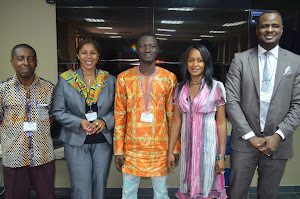Africa is being given a unique opportunity to conserve its tremendous diversity of freshwater species, which is a critical resource for many of Africa’s poorest people, says a press statement issued in Gland, Switzerland by the International Conservation Union, IUCN last week.
This chance has been offered the African continent, through an online interactive map, released by IUCN for each of the 7,079 river and lake sub-catchments across mainland Africa that reveals information on the distribution, conservation and ecological needs of 4,989 freshwater species, of which 21% are already threatened.
This tool and the accompanying IUCN Red List of Threatened Species™ report ‘The Diversity of Life in African Freshwaters: Underwater, Under Threat’ provide vital information to help plan development in ways that minimize or avoid impacts to freshwater species.
As a result of this, decision makers across Africa can now decide to use their water resources sustainably, and avoid paying millions of dollars, as is the case in Europe, to rectify poorly planned wetland development.
Commenting on the unique break for the continent, William Darwall, Manager of the project and of the IUCN Species Programme Freshwater Biodiversity Unit, said “The importance of Africa’s freshwater species goes largely unrecognised. A quarter of the world’s inland fisheries are located on the African continent, and in some countries freshwater animals account for 75% of the protein intake of people,” “Freshwater species often succumb to collateral damage as development proceeds but in many cases this can be avoided through careful planning based on solid information.”
For his part, Paul Skelton, Managing Director, South African Institute for Aquatic Biodiversity, stated; “This is a real milestone in the history of African freshwater biodiversity – nothing as good, or like it, is out there at this point in time,” “The information on freshwater fishes has already proved its worth in a number of conservation planning projects in South Africa, including work on the legal protection of threatened species and the establishment of a national framework of freshwater protected areas.”
Adding her voice, Aimé Nianogo, IUCN Regional Director for Central and Western Africa noted that “This production represents a very important contribution for Africa”. She said, “ In fact I expect African experts to use it as an information and training tool on aquatic species and for planning of the exploitation of fish resources. I also believe that African researchers will help in the periodic update of this list, which is of course not meant to remain idle.”
Several environmental management projects are already using information from this study to monitor the impacts of a hydro-electric dam on the Gambia River; promote a trans-boundary wetland conservation area in the Rusizi Delta; monitor water quality in the Okavango Delta; and integrate freshwater species in management of the Moulouya River catchment in Morocco.
According to the report the number of threatened freshwater species in Africa will increase dramatically if development of water resources is not planned sustainably. Major threats include loss or degradation of habitat to agriculture, and impacts of new infrastructure such as dams for irrigation and hydropower.
Species listed as Critically Endangered, Endangered or Vulnerable are collectively described as ‘Threatened’.
The IUCN Red List is not just a register of names and associated threat categories, but a rich compendium of information on the threats to the species, their ecological requirements, where they live, and information on conservation actions that can be used to reduce or prevent extinctions.






